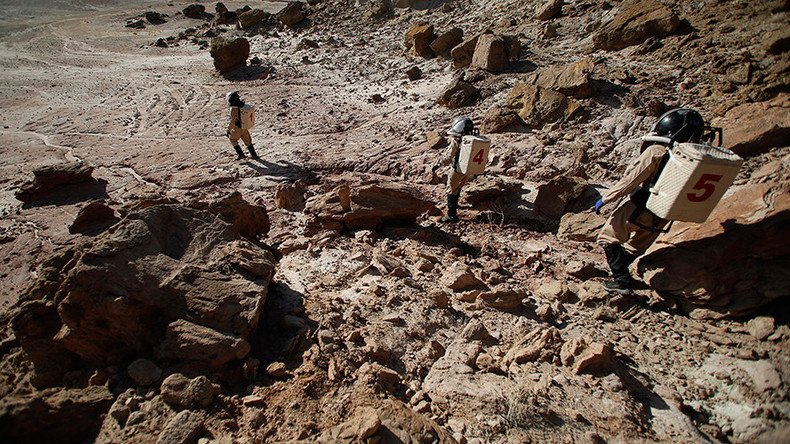Cancer risk for human Mars missions ‘significantly higher’, new model shows

The likelihood of astronauts developing cancer while on a mission to Mars is seriously underestimated according to a new study by a leading scholar on radiation and space physics.
The study by UNLV scientist Francis Cucinotta was published by Scientific Reports, and predicts a significant increase in cancer rates among astronauts who venture toward Mars or any long-term mission “outside the protection of Earth’s magnetic field”.
“Cancer risk is an important concern for galactic cosmic ray (GCR) exposures, which consist of a wide-energy range of protons, heavy ions and secondary radiation produced in shielding and tissues,” said Cucinotta.
Health risks from GCR exposure to astronauts range from cancer to central nervous system effects and cataracts to circulatory diseases and acute radiation syndromes.
While cancer and cataracts are the main cause for concern during missions in low Earth orbit, Cucinotta says, long-term space missions “are predicted to exceed acceptable risk levels”.
"The exploration of Mars will require missions of 900 days or longer with more than one year in deep space where exposures to all energies of GCR are unavoidable and doses only modestly decreased by radiation shielding,” says Cucinotta.
In comparison to the conventional risk models used by space agencies, which evaluated much shorter time periods in space, Cucinotta found with a non-targeted effect model, there was at least a twofold increase in risk of developing cancer.
The study called for “priority to be given” to additional studies into CGR exposure prior to long-term space exploration.













